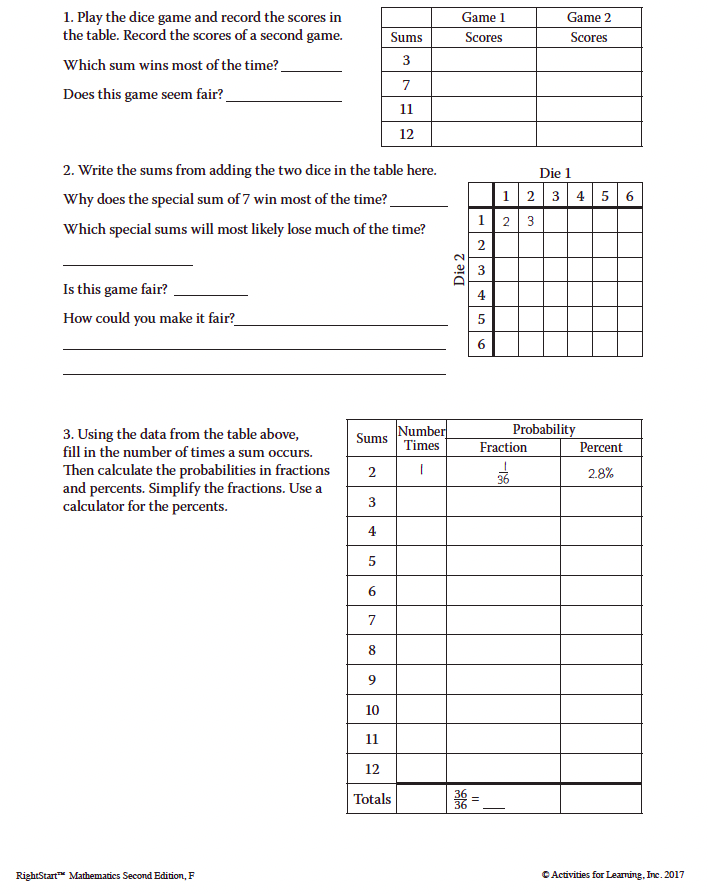Are you wanting some extra or independent work to supplement a child’s learning, especially for the quick-thinker? Perhaps they are working through the correct level, but they get the concepts fast? You don’t want to give them busy work or a ton of problems to work on but want something engaging and fun? Here are a five ideas for you.
1. Games. There are loads of games to play. While games are fun and engaging, they are also practicing the facts. Beyond the games listed in your RightStart Math curriculum, there are additional games to play in the Math Card Games book.
Simply choose a game that’s listed in your lesson, find it in the Math Card Games book, then look at games around that specific one. The games prior will be slightly easier and the games following will be slightly harder. But they may be approaching a topic in a new format that will challenge the child.
If you are running short on time, modify the games so they are solitaire games. Or, if you’re wanting someone to tell you how to play the games, check out our Vimeo subscription for game instruction videos!
2. Cooperative learning or peer tutoring. Encourage the child to help others learn. They may not have the ‘personality’ or humility to help others, but, if their knowledge can be channeled, not only would they have the experience of teaching, but many times other children learn better from their peers. It is also another level of understanding when you can teach a concept to another person.
3. Fun exploration of numbers. At the end of RightStart Tutoring Number Sense and RightStart Tutoring Multiplication and Division, there are some cool exploratory lessons. If you have these books, these are great to do. If you don’t have access to these tutoring books, here’s a link for some similar activities.
4. Play around with probability. Another idea is a probability activity using dice. Using two dice, look for four special sums: 3, 7, 11, and 12. Have the child roll the two dice, add the numbers, then record a tally mark whenever one of the special sums occur. Play for about 10 to 15 minutes so that at least 30 attempts have been made. Then answer the questions here, which will require deeper thinking.
5. Research a mathematician and their contributions to math. Encourage the child to explore the lives and work of mathematicians such as Fibonacci, Pythagoras, Euclid, Pascal, Ptolemy, or Archimedes. Some of the history of the mathematicians may inspire the child to investigate their contributions further. For example, researching Fibonacci might lead them to want to look at the Fibonacci numbers and the Golden Ratio.

